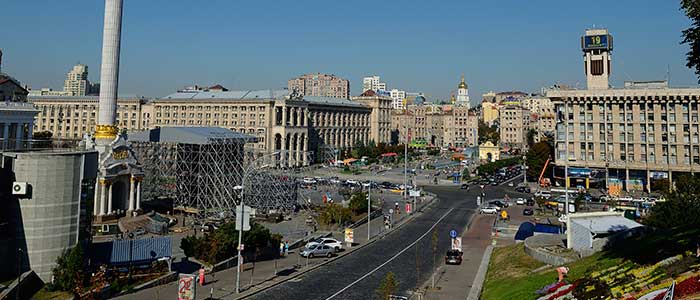Web_Ukraine_iStock_000078578589_Large.jpg

Independence Square in Kiev, Ukraine was one of the main sites of the popular uprisings that ousted the Ukrainian government in 2014. The new administration has voiced commitments to better governance and anti-corruption.
The European Court of Auditors examined support provided to Ukraine, worth €5bn between 2007 and 2015, as well as an €11.2bn emergency package in response to the crisis in the country in 2014. Auditors focused on improvements in public financial management and anti-corruption.
They found only limited progress had been achieved since 2007, with the political environment, a fragmented approach and too little emphasis on PFM early on derailing EU efforts to improve the Ukraine government’s stewardship of public money.
A popular uprising in Ukraine in 2014 saw pro-Russian president Viktor Yanukovych ousted and replaced by a European-focused government elected on an anti-corruption platform.
An EU auditor who worked on the court’s report into Ukraine told PF International that the new administration has shown clear dedication and an appetite for advancing reforms.
However, it has also stumbled so frequently on implementing changes, namely in anti-corruption, that the International Monetary Fund threatened to withhold funding from its $17.5bn bailout to rescue the country from a painful recession that saw it lose 12% of its GDP in 2015.
The auditor said that even with a change of government since 2014, the modest progress achieved remains “fragile”.
“On the Ukrainian side [reforms] are dependent on political will. The risk of instability is still there. The results are legislative mostly, so obviously they depend on the will of the Ukrainian government,” the auditor explained.
“If the government has no will to implement it then the finance ministry is stuck, what can it do? Things are happening [now], but the minute something changes, the minute there is a shift in the political approach, that is put at risk.”
The European Commission, however, made mistakes too. Despite disbursing large sums of money to Ukraine very rapidly when the crises unfurled, it had no defined PFM strategy for the country, the auditor told PFI.
The commission’s approach was “fragmented”, the auditor said, pointing to a lack of strategy. This led to slow and piecemeal progress, and incomplete and delayed outcomes. While progress has been made in Ukraine’s anti-corruption framework, results remain to be seen.
The country recently won praise from the international community after launching an online assets declaration system for public officials.
It revealed great wealth among Ukraine’s political class, prompting outrage in the country as citizens asked whether their new government and administration were all that different to the oligarchs of the past.
While the launch of the system was a significant milestone, its real impact depends on the country’s new anti-corruption agencies investigating the lavish wealth of officials where appropriate.
On the EU side, a key piece of leverage encouraging the launch of the system was the opportunity for Ukraine to achieve visa-free travel to the EU for its citizens. This was approved in November.
Szabolcs Fazakas, the member of the ECA responsible for the report, said however that EU support for Ukraine remains a “work in progress”.
“Further steps need to be taken to meet objectives,” he concluded.













